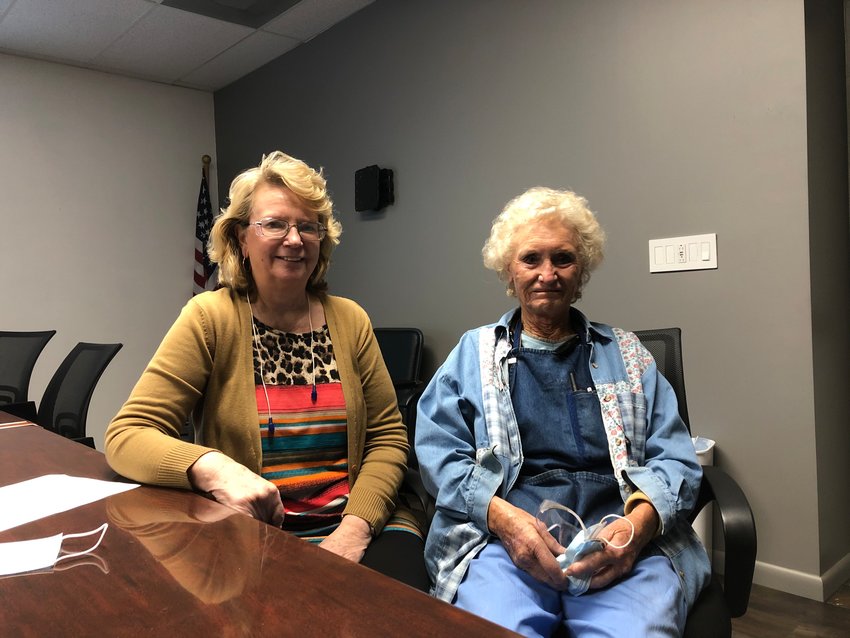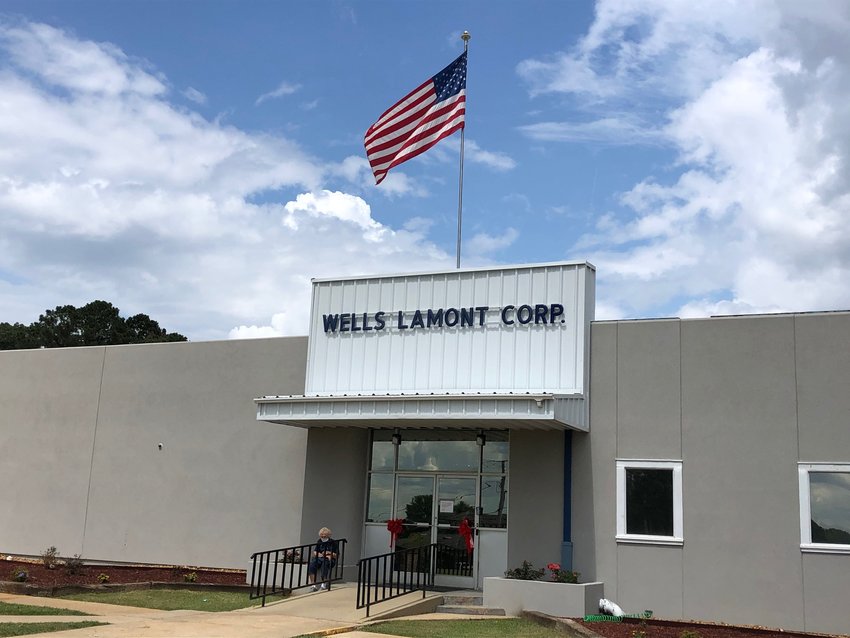Longevity seen at Wells Lamont
Judy Burks, a knitting operator at Wells Lamont for the last 55 years, has witnessed much change.
Opened in 1945 under Mississippi’s BAWI (Balance Agriculture with Industry) program, Wells Lamont recently underwent a renovation.
“Back when I started working here in 1965, jobs were scarce and I needed to find work,” Burks said. “I was able to get hired, and I’ve been here ever since.”
Wells Lamont was mainly a sewing factory when she first started and the female workers learned to sew gloves and continued that work for around 30 years.
“The work was definitely harder back then. Everything you did was on the line of production,” she said. “After that it started to change along with the world.”
Burks feels the changes to the company over time have really helped the industry.
“Wells Lamont has really grown and we have great pay and benefits,” she said. “Pay was only a dollar and 25 cents an hour when I first started.”
Burks was born and raised in Neshoba County and was married to the now late Nathaniel Burks. They have a daughter, Debra, two grandchildren, and two great-grandchildren.
She lives on a small farm in the Arlington community and she still drives tractors and does her own bush hogging.
Burks was hired on Sept. 13, 1965, and started on the Clute cut of gloves as a closer. She
became a knit operator in 1995 and retains that position today. She plans to retire at the end of
2020.
While some sewing still exists, the bulk of the glove and sleeve production is done by over 350 computer-programmed knitting machines, with yarn produced in the facility on 30 yarn manufacturing machines.
At their peak of 500 employees, Wells Lamont produced over two million pair of work gloves annually in Philadelphia.
The renovations began in June and took about six weeks to complete, according to Plant Manager Justin Clearman.
“We started having leaks and mold under the carpet and we decided we needed renovations,” Clearman said . “I got together with the mayor, and Wells paid our portion, the city paid theirs, and we found a contractor in Jackson who specialized in historical renovations.”
Clearman noted that the building is in great shape now that it’s renovated, and even during the coronavirus pandemic they’re doing well — even having produced face masks locally for businesses.
“This is the oldest industry in town, and we probably have around 100 employees here, mostly female,” he said. “They’ve been here for a very long time — at least 30-50 years. It’s something to be proud of when you walk through the doors every day.”
Clearman said labor and work hours had to be reduced due to COVID-19, but only they only reduced the workforce by 10.
“We’ve had around a 30-percent labor reduction for the amount of hours we can give,” he said. “We’re being careful, making sure to spread out, and acknowledge what’s going on in the world. We’ve had a few positive cases here but we’ve been able to navigate the waters pretty well.”
Clearman said business is good, despite the trying times of COVID.
“Business is good and it’s picking up. We’re not going to let 2020 define almost 80 years of history at this company,” he said.
Crystal Collins, Production and IT Manager at Wells Lamont, sees the renovations as a way to greatly improve the experience for employees.
“People see the renovated building and they like what they see,” Collins said. “The renovations have been great for people working here.”
Collins said the renovations have been well worth the wait.
“I think it looks really nice and it’s been a long time coming, since the building really needed to be redone after so long,” she said.
Research and Development Manager Dean Bavetta sees the renovations as very positive and uplifting.
“I see a really bright future with some positive results coming,” Bevetta said. “They’ve most definitely improved the worker experience. Things are a lot more clear now and a lot more is happening.”
Bevetta said along with better working conditions, the renovations have also improved communications.
“Communications are a lot better all the way to the top on new product development for streamlining opportunities,” he said.
Products fall into three categories:
• Cut-resistant products that are used primarily in the food processing industry.
• Heat-resistant products that are used in transportation and primary metal industries.
• Controlled-environment products that are used in medical and computer chip industries.
In 2001, a 60,000 square-foot distribution center and ships products worldwide.
Wells Lamont is located in Philadelphia at 299 West Beacon Street. W.O. Wells in 1907 established The Wells Glove Company in Aberdeen, SD, with $500 and five sewing machines. Business was initially dominated by the sales of leather buggy whips & hosiery sales. Three years later, they phased those out to concentrate their business on making gloves.




